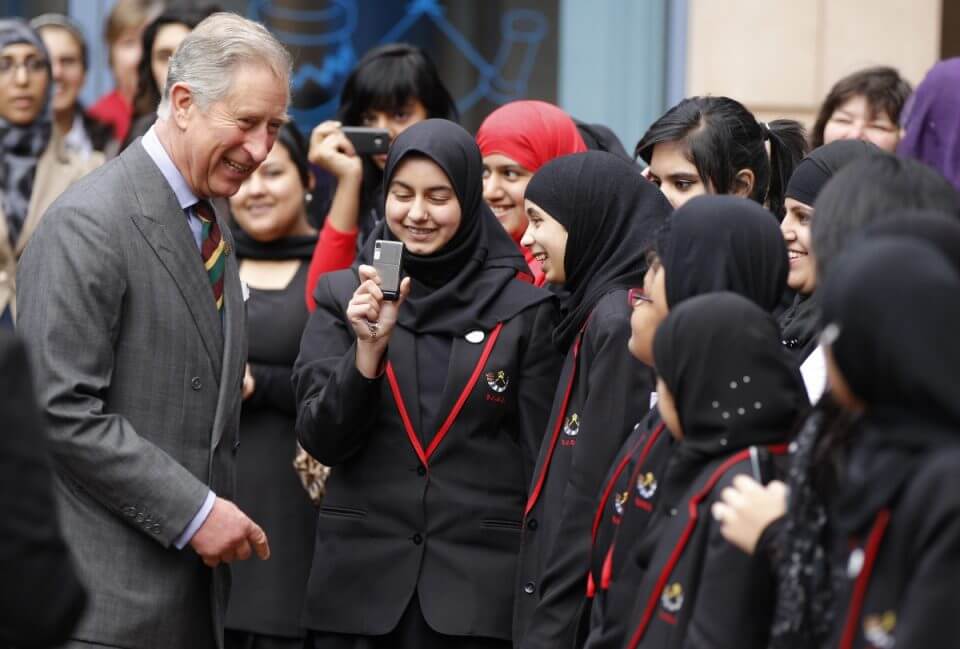
In the UK recently, there has been concern over the growth in private and unregistered faith schools.
Balancing the rights of communities who hold differing religious or philosophical views from the mainstream has long been a contentious issue. This point of debate is magnified when it comes to education and the question of who has the right, the family or the state, to determine the values of children. One would likely wish to maintain freedom of conscience and belief as far as possible. This is what the American Constitution endeavored to protect in its First Amendment. However, how far does this allowance for character education, of which religious belief is just one part, extend? How do we balance the wishes and needs of parents against the needs of the state to ensure a cohesive society?
The debate in the U.S. around the rights of parents to educate children to develop their character vs. the right of the state to determine what values ought to be taught came to a head in the 1972 case of Wisconsin v. Yoder. The case, brought before the United States Supreme Court, concerned whether children of the Amish community should be allowed to be educated by their community after 8th grade, or whether the state could make public school attendance compulsory. In the end, the Supreme Court found that the parents’ right to educate their children outweighed the state’s interest in educating its children. The parents’ fundamental right to freedom of religion ultimately outweighed that of the state to determine what values these children should receive as part of their everyday education.
This may have helped to settle whose rights carry more weight between the state and the family in the United States. But then the question arises, what if the right of the family to educate their children how they see fit impinges on the rights of their children? Out of this, questions about the ultimate purpose of education arise. In the UK recently, there has been concern over the growth in private and unregistered faith schools. The private faith schools under scrutiny number around 1,000 and are not affiliated with any independent school body.
Concerns have been growing about their quality of education, with the proportion judged “good” or “outstanding” by the Office for Standards in Education, Children’s Services and Skills (Ofsted) falling to 60% in 2017. Alongside these small private faith schools there has been mounting concern about unregistered schools, which fall outside the remit of Ofsted, and which not only lack any official credentials, but very often do not give a rounded enough or even sufficient education, treat the children who attend poorly, and go as far as featuring “texts that encouraged domestic violence, the subjugation of women and homophobia.” In some cases, the buildings used were not fit for purpose and posed a danger to the children. This was particularly so when it came to several unofficial Orthodox Jewish schools, where during a BBC news report the teacher could be seen to strike one of the children.
Alongside this, there have been cases in the past of unregulated Muslim schools, known as Madrassas, teaching material that is simply not acceptable. Evidence was uncovered a decade ago of these schools teaching from textbooks provided by Saudi Arabia that taught intolerance of non-Muslims and contained vile anti-Semitism. These problems are still with us, as Dame Louise Casey has made clear again in the last couple of months. The line between freedom of religion and the need for a cohesive society is a fine one, and one that can easily be blurred by over-zealous state interference. On the other hand, when education can arguably be said to contribute to a growth of parallel communities that espouse extreme views, fed by funding to extreme institutions, education becomes a tool of subversion.
These issues are becoming more urgent by the day, particularly with the increases in immigration into the U.S. and UK over the last 30 years. Education used to be seen as a way of providing a large part of the glue that bound new arrivals to the society they had arrived in, creating an integrated younger generation. This was seen in the U.S. during the late 19th and early 20th centuries, as Charles Murray describes in his book Coming Apart when he describes the exercise books used to engender a sense among young people of the bonds that bound them together. This approach was also taken in the UK. Now, we risk not providing this element of social cohesion with the devolution of education into different silos, particularly when it is parents’ choice where they send their children to school.
On the other hand, we do not want to go down the road to dictating that all children must attend the same type of schools, where they all learn the same things in the same way. That is antithetical to our Western tradition, breeding as it does state-enforced conformity, pushing important issues to the margins, issues that include not only the materialist view of the world but also how to live and the ethical structure that provides guidance on how to do this. Rod Dreher is known as someone who is concerned about the growing hostility to Christianity and faith in general in the world of education. His solution is the Benedict Option, which might best be described as a more extreme version of the Christian command to be in the world but not of the world.
As a result, he would be wary of the state coming down too hard on institutions like the ones covered above. And, he has a point; we don’t want the state to have too much control over the beliefs and values that children grow up with. Balancing that with the good of society, something that is harder and harder to achieve in our time of ever-greater mobility and social uncertainty is something that we’re all going to have to grapple with in the coming years. We have to ensure that this is something we get right.











